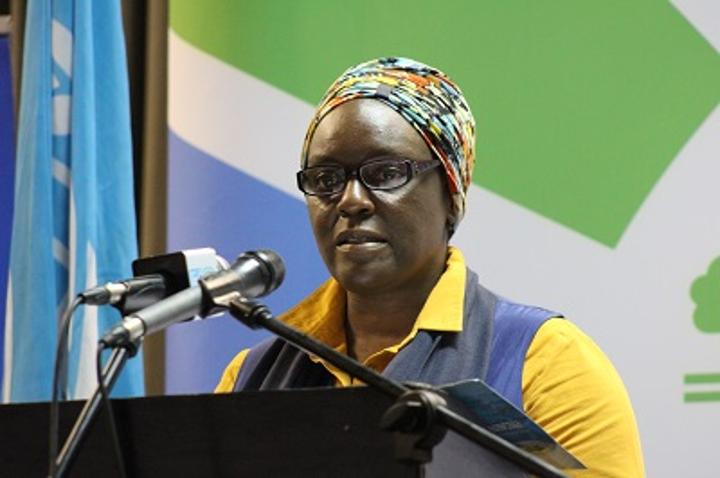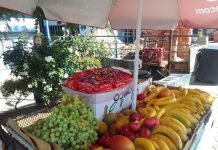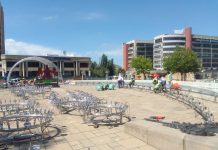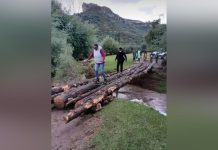Africa-Press – Lesotho. The Government of Lesotho has through the Ministry of Development Planning, in collaboration with the United Nations (UN) launched the 2022 Voluntary National Review (VNR) programme for Sustainable
Development Goals (SDGs). This is the process through which countries assess and present progress made in achieving the SDGs, which are the core of the country’s development priorities.
The assessment will be directed on key VNR goals which include poverty, quality education, gender equality and life on land that embrace environment and climate change.
UN Resident Coordinator Amanda Mukwashi applauded the Government of Lesotho for volunteering as second time presenters together with 22 other African countries and said Lesotho volunteered to report in the
2019 VNR process and came up with recommendations for implementation.
“We have heard some of the achievements that were made following that report. As
the process begins, we at the UN look forward to partnering with the people of Lesotho as they introspect and look at what has been achieved and is yet to be
delivered in these remaining 8 years of the agenda 2030,” Mukwashi said. She added that they are committed to the realization of agenda 2030 because they know that the successful delivery of
SDGs will transform the lives of many people, particularly those who are at risk and most vulnerable in the face of food insecurity, climate change, Gender
Based Violence (GBV), unemployment, limited access to health services and poor education. She stated that the UN’s commitment to this end remains solid and unwavering and has shown that this year Lesotho will be
presenting its report on goals 4, 5, 15 and 17. “Goal 4 is education; we have witnessed how Covid-19 has hampered the quality of education in the country.
This goal like all other goals, does not stand alone, if not achieved, it will have impacts on other goals. It is timely that this launch is happening during
international women’s month which celebrates the achievements of women and girls globally. It is also a month when we stop and take stock of what else needs to be done to achieve gender justice
and dignity for all women and girls, and this relates to goal 5 gender equality,” she highlighted. Mukwashi indicated that the rights of women as enshrined in international conventions that Lesotho has signed up and
ratified need to be domesticated so that these rights can have meaning in everyday lives. She said they must all be determined to work towards strengthening these systems and structures so that they will always be there
for women and girls when they need them. “Gender equality is a key indicator of the moral heart of any community. This leads me to goal 15, an important goal
for both men and women but perhaps more for women as they depend on the land for life. Achieving agenda 2030 will require great and sustainable partnerships
and we must work together. We need partnerships that leverage different assets, financial resources, community based knowledge, technologies. We need partnerships that open up opportunities in the country and in the region and
globally, that unleash creativity and innovation and that will deliver the Lesotho we want,” she stated. Mukwashi called on the government to make the process inclusive by making sure that the voices of women groups, farmers,
civil society, people with disabilities, private sector, academia, religious leader, media, young and old are all considered. “I also call it to establish a
mechanism for follow-up on the implementation of the VNR recommendations and to also report on the status of the implementation,” she said. On the other hand, the Prime Minister Dr.
Moeketsi Majoro in his keynote address said this is a very interesting process where UN notice a major problem of many countries of the world not pursuing development
in a systematic way, but they popularize SDGs and set goals. “This is an important milestone which is intended for us as a nation and for other nations to review progress that has
been made. We never dish up on the progress that we have made during the national vision 2020 which started in the year 2000. We did a review and discovered that we made some progress in some directions but had also failed in
others,” he said. Majoro further added that they have learned mistakes, lack of resources, ambitious goals and they were not fully capitalized and funded but they did not give up.
Therefore, he said they continued and have roles in the SDGs process, saying with this launched process, they have to work very hard to stay on and continue to measure their progress.
For More News And Analysis About Lesotho Follow Africa-Press






